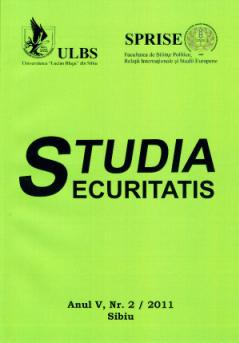SPAŢIUL POST-SOVIETIC ÎN CĂUTAREA UNEI IDENTITĂŢI DE SECURITATE. CAZUL REPUBLICII MOLDOVA
POST-SOVIET IDENTITY LOOKING FOR SECURITY. THE REPUBLIC OF MOLDOVA CASE
Author(s): Viorica TicuSubject(s): Politics / Political Sciences
Published by: Editura Universitatii LUCIAN BLAGA din Sibiu
Keywords: Post-Soviet space; Russia; transition; Republic of Moldova; neutrality status; security problems; Transnistria; risks; assessment
Summary/Abstract: Collapse of Soviet Union increased the world with 15 independent countries. Historically each of the nations was unique with different cultural, political and economical development. Before events of 90th for world history was not familiar changing of countries with central economies into capitalist and democratic states. These countries somehow were the part of historical experiment, whether their development was forming under not natural conditions for the identity of their nations. But the post soviet countries built their development from zero. For numbers of countries their way from Moscow to European Union leaded to fully integration in democratic society. The problems of security within the territory of the former Soviet Union are numerous. The Republic of Moldova Moldova has undergone one of the more difficult and uneven transition processes of all post-soviet republics. In part, this has been due to the country’s uncertain political direction, positioned as it is between an expanding European Union to the west and Russia to the east. Political and territorial separatism remains one of the main concerns and the obstacle in the process of state building and on the way of reintegrating the Moldovan society. The security architecture in the Republic of Moldova is still in the process of formation, which complicates the situation. The situation in Republic of Moldova represents a combination of many factors, such as: the disintegration of a huge, multiethnic, totalitarian empire; the security asymmetry between powerful ex-hegemony and weak neighbors; the dominance of ethnic nationalism; the simultaneous processes of reintegration and disintegration; the absence of democratic traditions in local political and economic culture and weakness of civil society
Journal: Studia Securitatis
- Issue Year: 2011
- Issue No: 2
- Page Range: 64-75
- Page Count: 12
- Language: Romanian
- Content File-PDF

